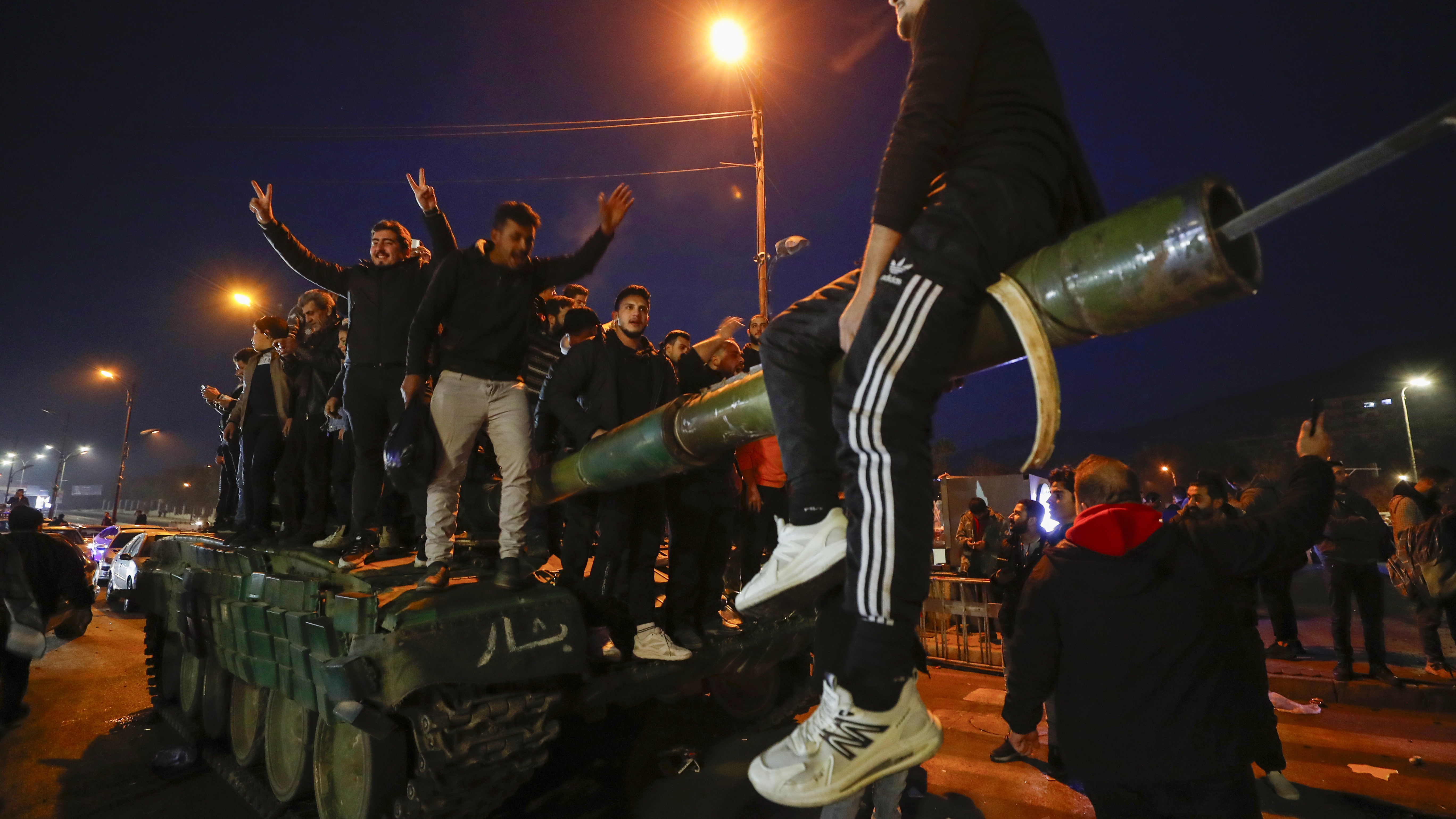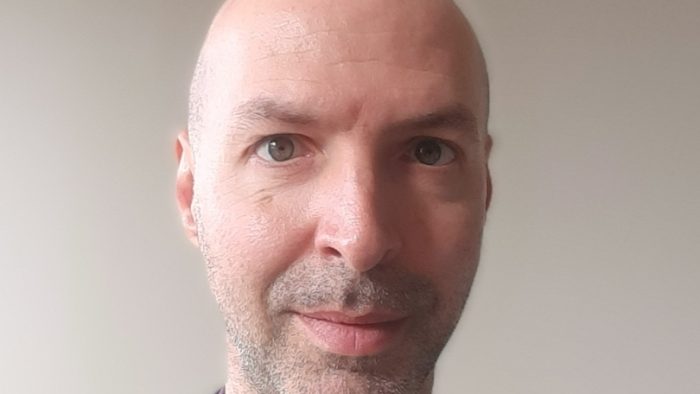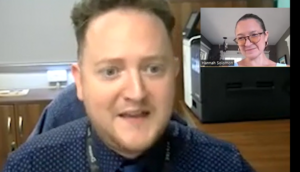Initially one half of the duo, Duffy & Bird, Tricia Duffy then set out on her own as a solo artist under the name of Little Lore. We discuss why her songwriting is like an episode of The Simpsons,...
Initially one half of the duo, Duffy & Bird, Tricia Duffy then set out on her own as a solo artist under the name of Little Lore. We discuss why her songwriting is like an episode of The Simpsons, her feelings of devastation at the demise of her original duo and why, in hindsight, it turned out to be the best thing that’s ever happened to her.
Tell us how you first got involved in playing and singing.
I was a singer when I was a child and then when I was 19 left the UK to go to America to work on cruise ships. I was so desperate to get into working at sea, my first job was in the gift shop. I left the gift shop and became a hostess and entertainer. I spent four and a half years at sea altogether. I was basically like a Butlins redcoat. Doing everything from calling bingo to singing. I sang a lot of standards and contemporary music as well.

And I always sang in choirs and that type of thing, and then I was really fortunate to meet an amazing lady who’s still my singing teacher, Rose Bellingham. She runs these workshops and I went to one of those and I performed a solo. It must have been about fifteen years ago now. And she just came up to me afterwards and said, “You know it’s not too late for you. If you want to still make it as a singer you probably could.” And I was like, “Really?” because it was just a hobby at that stage. And I said, “Well give me some lessons then.” And I started having lessons and I was sort of genre-confused. I didn’t really know where I wanted to be. And she suggested that I try for a musical so I went to an open audition for a musical and amazingly got a part. First audition I’d ever been for and I got a part in a musical. Which was a great learning curve to work out what’s definitely not for me because – my God! – that is a different kind of schedule. I don’t know how anyone does a long run. The one I did was very short and I had, like, the older woman ballad part but it nearly killed me.
And then I started singing contemporary music. I got into a band and was singing rock covers. I met Al my duo partner and we were on that pub circuit doing covers gigs as a duo – with guitar and vocals. Our set-list was up to a hundred songs I would imagine because we were always thinking, “Oh, we’ll do this. We’ll cover that.” And Al was such an amazing guitarist. He could play anything. And I said to him one day, “Do you know what? It’s all very well trying to turn heads with different arrangements of other people’s songs. Why don’t we write our own?” And he just goes, “Alright. You start. Let me know when you’ve got something.” And I was like, “Fine, I will.” So I started writing and really found my feet with Americana and country.
Did the focus on Americana come straight away or did you start off by experimenting with various genres and styles?
Well I suppose I still do experiment with different genres and styles, now that I’m writing professionally. I’ve been writing for a sync brief in a shoegaze style and this morning I was writing something for musical theatre. So I do still experiment with genres but my artist project – the Little Lore project and Duffy & Bird before it – they both very much have storytelling leanings. And writing songs to perform myself rather than writing for other people I really do like songs that tell stories. I admire those songs when other people write them and those are the songs I want to write. So that naturally points me to towards that genre and I also enjoy the devices of Americana: the instruments – the way that a voice can duet with a steel and all of those kind of things.

After beginning to establish yourself as part of a duo, you then moved onto becoming a solo artist. Did that feel daunting?
Absolutely. It destroyed me. I was devastated by the ending of the duo. I didn’t want it to finish at all. And I didn’t know I could do it on my own because my voice is my first instrument. My guitar-playing was not that hot and I couldn’t imagine having the kind of relationship with someone else as a duo partner that I’d had with Al. And it was obviously the pandemic so I couldn’t even get together with anyone anyway. I didn’t have the opportunity to find a chemistry with another guitarist. It was really, really upsetting when it ended. I didn’t want it to end at all. We just had different priorities and he couldn’t give me what I wanted so there was tension between us because I was like, “When are you going to get to that song I sent you?” And he’d be like, “Later, when I’m not running a business and dealing with my family.” So we just had different priorities. But, I have to say that even though I still really miss that and I miss him and I miss our friendship – because obviously that had a massive impact – it has been the best thing that’s happened to me!
I was going to say that! Because in preparation for this interview I listened to your previous albums and while the Duffy & Bird material has a raw, really emotive feel about it which works really well, when we move on to hearing the Little Lore material, it’s like a whole different world. The way you’ve thrown yourself into it and the way your voice works with the instrumentation, it just seems a huge leap forward.
Thank you. That really means a lot to me because I know you’re really familiar with everything that I’ve done. It honestly has been the best thing that ever happened. I think that everything works out for a reason doesn’t it. What feels really awful at the time turns out for the best. And I’m so focused on my writing. My writing is getting better and better. Obviously, every week I still write duff songs! But it’s a volume game. You’ve got to write a huge amount of material is what I’ve really learnt. I mean, just masses. I write two to three songs a week now and I’m really disciplined: “Writers write so get to your desk. Get your notebook out. Pick up your guitar and write!”
Are they always completed songs or are there fragments that you might return to later and use elsewhere?
Pretty much always completed songs. I’ve got a couple of little devices. I write for something called the song-a-week challenge every week. Which is run by an amazing guy called James Tristan Redding in Nashville. And he just puts a prompt up every week. This week’s prompt was ‘Ode to chameleons’ so you just never know what you’re going to get and I’ve been doing it over a year now. Every single week I’ve written to that prompt. Whatever he offers me. Last week it was something like ‘The roots beneath the tree’ – so it can be anything! And you can either write that as a title or you can jump off from it so today I’ve jumped off from it a little bit. And there’s a minimum of one every week so that’s fifty-two songs a year!
And then over and above that, I’m doing a Masters in song-writing and so we get one or two briefs a week from that as well. And sometimes they’re quite broad – so it might be to experiment with a different form or to experiment with a different rhyming pattern. And other times they’re more specific – write something about identity, write something about imposter syndrome, write something about a topic. Sometimes it’s been sonic challenges – write with a certain chord structure or whatever. So there’s all sorts of different things coming in which is really good for my discipline.
And then over and above that, there’s the songs that come to you. You’re running down a river and see someone reading a book and think, “Ooh, that’s a title.” And then I’ve got some briefs as well – I’m writing for a movie at the moment. So there’s a few opportunities like that coming through as well.
You don’t just stick to stereotypical Americana themes like road-trips and personal heartbreak. You’re happy to tackle all sorts of controversial, contemporary issues. Was that a conscious decision?
Well I like songs to be – and this is a very specific technical term – ‘arf clever! You know like when you watch an episode of The Simpsons and there’s something for the adults and you go, “Ahh ha-ha-ha that’s funny,” and then the kids can just take it on face value. When songs are good, that’s what I think they do. If you are listening carefully to the lyrics and to how the music plays with the words you can go, “Oooh, actually that’s clever. I see what they did there. Interesting.” And a lot of country music really does do that. Those typical – ‘problem, statement, how do I feel about the problem, expand more on the problem, ooh twist the problem about up on it’s head, it’s not really about what you thought’ – type songs I think are really, really, really clever. Which is probably why I’m really drawn to that kind of writing and that kind of music. And yet, you could just listen to it on the radio and hum along to the melody. You don’t have to engage with the clever lyrics. You can just listen to the chorus and go, “Oh, that’s nice. It’s a fun tune. I can sing along to it.” So that’s something that I really try to do. Sometimes, I think I have a tendency to go off ‘alf clever and go full clever and then I have to really reign myself back and just decide what I want the song to be about.

What are your favourite artists and who has been a big influence on you?
One of my absolute top favourites is Sheryl Crowe. I love the fact that she can write a really hard-hitting, political song one minute and then just a pop throwaway the next minute. I love the vibe of that Americana with the pop sound. I think she’s a badass as well and so all power to female performers who keep on hustling and keep on doing it. To that end as well, I really love Shania Twain. I just think she’s amazing. I think she’s a really good role model. I love Dolly. I love Joanie Mitchell. Another great influence of mine is Nina Simone. I absolutely adore both her writing and her performing of other people’s songs. Her phrasing and her ability to tell a story – there’s no-one touches her. And she really did sing some very hard-hitting, difficult songs as well.
You’re a regular visitor to Nashville. Are those trips now an important part of the creative process for you?
Definitely. My dream is to be able to go out there twice a year for a month to six weeks at a time. And have that environment where I could just drop in for co-writes and what have you. Obviously, the pandemic stopped me going for a bit but I went this year in March and I’m going again next year. They have a song-writing festival over there called Tin Pan South which is just an amazing place to be because it’s literally the only large-scale festival that celebrates song-writing rather than performing. It’s super inspiring because those national writers are writing contemporary pop music that we hear on our radios right now, as well as country music.
Presumably, you’ve managed to fit in a bit of time for sight-seeing as well while you’ve been in Nashville?
Well, I’ve seen a lot of the sights already but the live music is the thing – so you’re going to all the iconic venues and you’re seeing live music and that’s really what you want to see.
You’ve got a new EP that you’re working on currently. What can you tell us about that?
I’ve got seven songs and I’m going to release it in two parts: Seven Stories part one and Seven Stories Part Two. There’s a real variety of styles. Death is one of my favourite subjects to write about so there are a couple of quite bleak, sad, death songs. I’ve got some wry wit in there as well. There’s obviously a climate change one as well – I always like to include one of those. It’s a figurative song written from the perspective of the planet.
I’m recording the vocals in a studio in Kent with an amazing producer and engineer called Paul Stanborough. Lowpines (Ollie Deakin) has done the production and all of the instrumentation again and Morgan Karabel is playing drums once more. It is important to me to have women in the team so having a female drummer is really cool.
Is there anything else you want to tell us?
I hope I’m going to write an album next year. These EPs will come out in the autumn and early next year and probably towards the end of next year hopefully I’ll be able to release an album.
Live dates:
Saturday 8th July at 3pm, Hanwell Cavern, London W7
Tuesday 5th September at 8pm, Songwriters Gallery, Hangar Farm Arts Centre, Totton, Southampton SO40 8FT
Related posts:
Little Lore: the magical new project from UK Americana singer-storyteller Tricia Duffy
‘Normal’: a gorgeous slice of lush Americana – the new single from Little Lore
Seven Stories: a brand-new project from the acclaimed Americana singer-songwriter, Little Lore
















